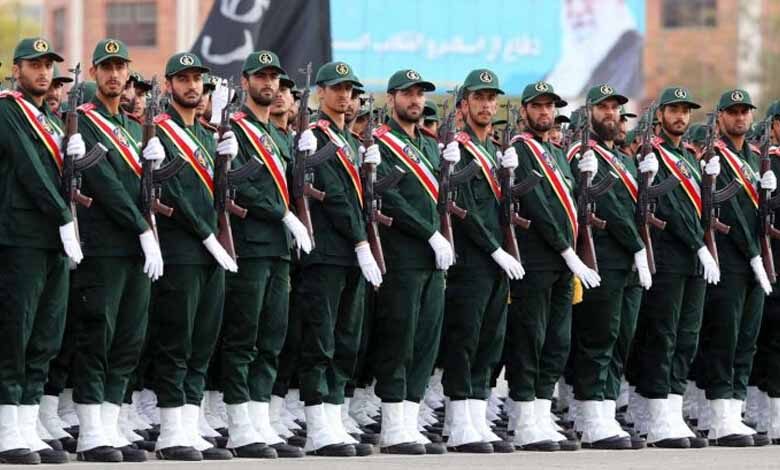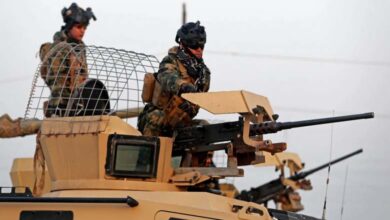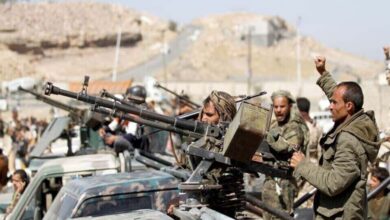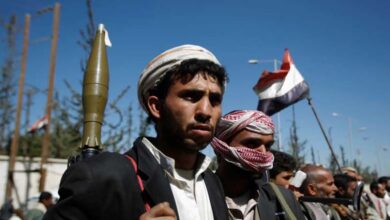Qatar’s funding of IRGC in support of Iranian terrorist project

The fact that the Qatari regime is funding terrorist groups, primarily the Iranian Revolutionary Guard, to the terrorist Hezbollah and ISIS, as well as terrorist movements that seek to kill American foreigners, has proven true and could lead to Qatar being placed on the list of state sponsors of terrorism.
The Qatari involvement in supporting and financing terrorism is no longer hidden, especially with the investigation revealed by the United States of America on Qatar’s financing and support of terrorism through the Iranian Revolutionary Guard, which is included in the international terrorist lists, and from which dozens of extremist groups in the region, most notably the terrorist Hezbollah, are branching out, calling on the Qatari regime to return to the Gulf and Arab house and to respect the signed agreements, the latest of which was the Al-Ula Agreement, and to stop the aggressive behavior that harms Arab national security, the Qatari people and their capabilities.
Qatar’s relationship with the Iranian Revolutionary Guard and militias is not new, but goes back decades, during which Doha sought to establish solid and broad relations with these militias, whether the Houthi militia in Yemen or the terrorist Hezbollah in Lebanon and elsewhere.
The Qatari support for the IRGC mainly reflects the evolution of the relationship between Doha and the Iranian regime, especially since the IRGC is considered the main tool controlling Tehran mainly and controlling the Iranian project in the region that started in 1979.
Doha’s relationship with the militias and the Iranian Revolutionary Guard confirms that it has so far remained consistent in its previous positions in support of Iranian militias, whether in Yemen or Lebanon, which represent a clear and explicit targeting of Arab national security, and reflects the high-level role-sharing between Tehran and Doha, where Qatari support has now been directed not only to the militias, but directly to the Iranian Revolutionary Guard.
The establishment of Al Jazeera came to address the inferiority complex that Doha was suffering towards the Gulf countries, due to the historical accumulation, where Qatar was under the rule of the Al Khalifa. Therefore, we find that Al Jazeera was established to give Doha an presence and influence on the Arab, regional and international political map, in addition to its use as a tool to confront the Arab Gulf countries and target Arab countries. Al Jazeera’s handling of events has maintained the same pace and has not changed, so the channel has become a media platform for groups and organizations that target Arab national security, such as the Houthis, the terrorist Hezbollah and the Muslim Brotherhood organization.
Qatar has been and continues to support violent and extremist groups, which is a long-standing and ongoing support, especially for extremist organizations with a Sunni background, such as al-Qaeda, ISIS and the Muslim Brotherhood, as well as armed groups and militias with a Shia background such as the Houthi movement, the Iranian Revolutionary Guard and the terrorist Hezbollah.
The images of this direct and indirect support for these organizations, and preventing the issue of ransoms and money that Qatar paid to these militias when they kidnapped some Qatari figures, are numerous. Doha paid huge amounts of money to terrorists, which were used in many terrorist operations.
Extremist organizations originated from the womb of Qatar, and there is a clear link between Doha and them, whether through direct or indirect support, in addition to political, diplomatic, security and military support. They continue to provide support under the eyes of the international community without deterrence, and the international community has not intervened significantly despite the feeling of concern over Qatar’s erratic behavior.
Despite the relationship between Doha and Washington and the presence of nearly 10,000 U.S. troops in Qatar, the United States is conducting a broad investigation into the information about Qatar’s support for the Revolutionary Guard and Qods Force, which killed nearly 600 U.S. troops and officers in the Middle East.
For years, Qatar has been communicating with the Iranian Revolutionary Guard and receiving its leadership in Doha and providing it with financial support. The Revolutionary Guard has also used Qatari ports to smuggle weapons that were reaching terrorist militias. Despite the availability of this information, the international community has turned a blind eye and has not opened a real investigation and taken measures to hold Qatar accountable.
The support that Qatar has provided to terrorist organizations media platforms over the past years, which are controlled by some of those organizations. By analyzing the content of these platforms, we conclude that the aim is to distort the Arab regimes in an attempt to topple them and undermine their stability.
The rumors being raised by Qatar’s media platforms are directly aimed at the stability of countries, besides supporting outlaws from these countries by hosting them on various channels in order to distort and sow discord, which could have disastrous consequences for these countries were it not for the ability of their media institutions to dismantle Doha discourse and protect their citizens.
The fact that the Qatari regime is funding terrorist groups, primarily the Iranian Revolutionary Guard, to the terrorist Hezbollah and ISIS, as well as terrorist movements that seek to kill American foreigners, has proven true and could lead to Qatar being placed on the list of state sponsors of terrorism.












